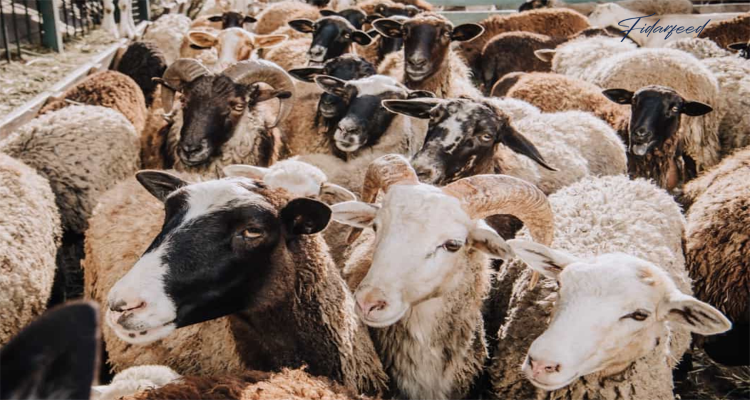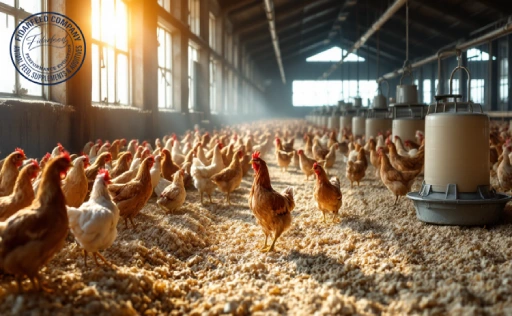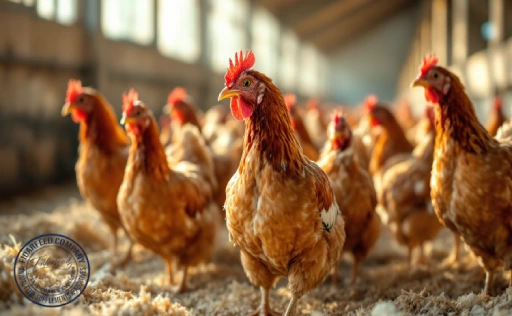Modern Techniques for Managing Stress in Sheep Farming have become increasingly vital as breeders seek to improve animal welfare, productivity, and overall farm success. Stress is a silent enemy that can undermine health, reduce growth rates, and lower reproductive performance in sheep. Whether you are a seasoned breeder or new to the industry, understanding how to identify, manage, and prevent stress in your flock is key to running a thriving operation. This article will walk you through practical, evidence-backed methods to recognize stress triggers, implement modern handling techniques, and create an environment where your sheep can flourish. Let’s explore the latest approaches that make sheep farming not only more humane but also more profitable.
Why Stress Management Matters in Sheep Farming
Stress is more than just a fleeting discomfort for sheep—it directly affects their immune system, growth, and reproductive capabilities. When sheep experience prolonged stress, their bodies produce higher levels of cortisol, a hormone that can suppress immune function and slow growth. This means stressed animals are more susceptible to illness and may produce fewer lambs or weaker offspring. Beyond the biological impact, stress also influences behavior, making sheep less cooperative during routine handling, which can complicate farm management.
Learn more about: Alternative Feed Ingredient
Research consistently shows that managing stress isn’t just about animal welfare—it’s a smart economic decision. Healthier, calmer sheep eat better, grow faster, and reproduce more efficiently. For breeders and all involved in the feed industry, stress management is directly tied to feed conversion efficiency and overall profitability.
Recognizing Common Stress Triggers in Sheep
Before you can manage stress, you need to know what causes it. Common triggers include:
-
Environmental Factors: Extreme temperatures, overcrowding, and sudden changes in housing or pasture conditions can unsettle sheep.
-
Handling Stress: Rough handling, frequent movement, or poorly designed facilities can induce fear and panic.
-
Nutritional Deficiencies: Inadequate or unbalanced diets can weaken sheep and make them more vulnerable to stress.
-
Social Stress: Sheep are social animals; disruptions in flock hierarchy or isolation can cause anxiety.
-
Health Issues: Parasites, infections, or pain also generate stress responses.
Learn more about: How to Treat Ringworm in Sheep and Lambs: A Complete Guide
Identifying these triggers early helps breeders take proactive steps to protect flock health and well-being.
Behavioral Signs Your Sheep Are Under Stress
Sheep often try to hide their discomfort, but there are several behavioral clues that stress is affecting them:
-
Reduced Appetite: Stressed sheep may eat less or refuse feed altogether.
-
Restlessness or Agitation: Pacing, frequent vocalizations, or aggressive behavior toward flock mates.
-
Isolation: Sheep separating themselves from the group can indicate fear or illness.
-
Poor Coat Condition: Rough or patchy fleece is often a sign of chronic stress.
-
Changes in Lambing Patterns: Delayed or difficult births, and weaker lambs, may reflect maternal stress.
Being vigilant about these signs allows breeders to intervene before problems escalate.
Using Low-Stress Handling Techniques for Better Outcomes
Traditional handling methods can unintentionally elevate stress, causing panic or injury. Modern techniques focus on calm, deliberate movements and facility designs that guide sheep naturally:
-
Quiet Handling: Speak softly, avoid sudden moves, and use gentle pressure.
-
Chute and Pen Design: Rounded corners and solid sides help prevent sheep from balking.
-
Minimized Restraint Time: Reducing the duration sheep are held lowers anxiety.
-
Regular Routine: Predictability in daily care reduces fear of the unknown.
Learn more about: The Essential Guide: How Do Sheep Help Farmers?
These approaches encourage cooperation and make routine tasks like vaccinations or shearing less traumatic—for both sheep and handlers.
Environmental Enrichment: Creating a Calm Space for Your Flock
A stress-free environment is foundational. Simple adjustments can make a big difference:
-
Shelter and Shade: Protect sheep from extreme weather to avoid heat or cold stress.
-
Noise Reduction: Loud machinery or dogs can spook sheep; minimizing such disturbances helps.
-
Space to Roam: Overcrowding elevates tension; adequate space allows natural behaviors and reduces conflicts.
-
Social Grouping: Keeping compatible groups together prevents bullying and social anxiety.
Providing comfort through environmental design helps sheep feel safe and supported.
The Role of Nutrition in Stress Reduction for Sheep
Good nutrition does more than fuel growth—it supports mental well-being. Balanced diets rich in essential vitamins, minerals, and antioxidants can bolster immune function and reduce stress responses.
-
Supplements: Adding vitamin E, selenium, or other antioxidants has been shown to lower oxidative stress.
-
Hydration: Clean, fresh water is essential to prevent dehydration-related stress.
-
Feed Consistency: Sudden diet changes can upset digestion and increase stress, so introduce new feeds gradually.
Learn more about: The Complete Guide: How to Run a Successful Sheep Farm
Well-fed sheep are more resilient and better equipped to handle daily challenges.
Tech Tools That Help Monitor and Manage Stress in Sheep
Technology is transforming sheep farming by providing real-time data to help manage stress effectively:
-
Wearable Sensors: Devices can track heart rate, movement, and behavior patterns to detect early signs of distress.
-
Remote Monitoring Cameras: Visual observation without disturbing sheep allows for stress-free health checks.
-
Automated Feeders and Waterers: Ensures consistent access and reduces competition stress.
-
Data Analytics: Analyzing health and environmental data helps anticipate issues before they arise.
Integrating technology supports smarter, more precise management decisions.
Breeding for Resilience: Genetics and Temperament Matter
Some sheep are naturally calmer and better at coping with stress. Selecting for these traits can improve flock welfare over time:
-
Temperament Assessment: Breeders increasingly measure docility to prioritize calmer animals.
-
Genetic Testing: Identifying genes linked to stress resilience can guide breeding programs.
-
Balanced Breeding Goals: Combining productivity with behavioral traits leads to stronger, more adaptable flocks.
Learn more about: The Complete Guide to Sheep Farming for Beginners
Investing in genetics pays dividends by reducing chronic stress and improving farm harmony
Real-Life Examples: How Farmers Are Successfully Managing Stress
Consider a sheep breeder who faced high lamb mortality linked to stressful handling during lambing. By redesigning their handling pens with curved layouts and introducing quiet, slow handling methods, lamb survival improved by over 15%. They also started supplementing feed with antioxidants, which strengthened ewe health and reduced infections.
Learn more about: The Ultimate Guide to Sheep Farming Equipment
Another breeder installed wearable sensors to monitor sheep behavior remotely. Early detection of stress during transport allowed adjustments to routines, preventing losses and improving overall welfare.
These real-world successes show how combining knowledge, environment, nutrition, and technology can transform sheep farming.
Conclusion: Stress-Free Sheep, Stronger Farms
Managing stress in sheep farming is no longer optional—it’s a cornerstone of modern, sustainable breeding. From recognizing triggers and behavioral signs to adopting low-stress handling and leveraging technology, there are many practical ways to create healthier, calmer flocks. Balanced nutrition and careful breeding for resilience further support this goal.
By embracing these modern techniques for managing stress in sheep farming, breeders not only enhance animal welfare but also boost productivity and profitability. Your flock deserves the best environment to thrive, and your efforts will be rewarded in healthier animals and stronger farm performance.
Feel free to share your experiences, ask questions, or offer insights in the comments below. Let’s build a community focused on better sheep farming for everyone.







